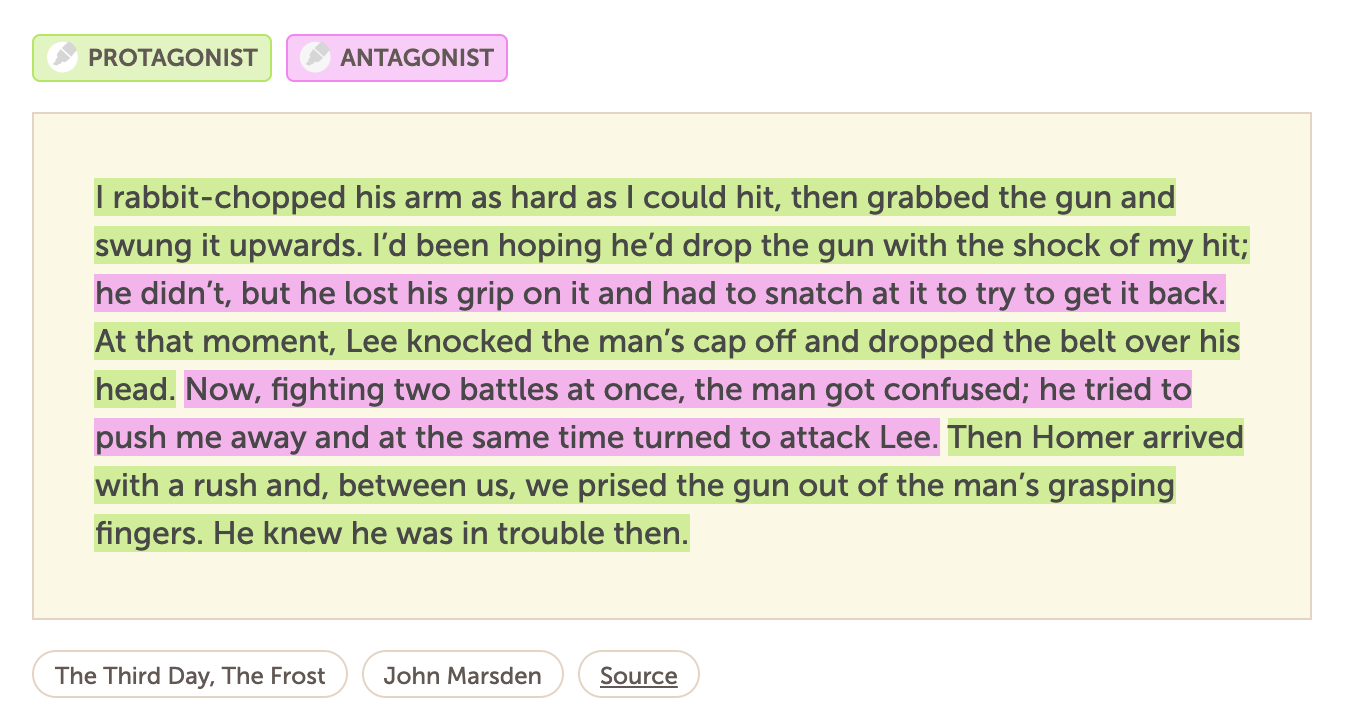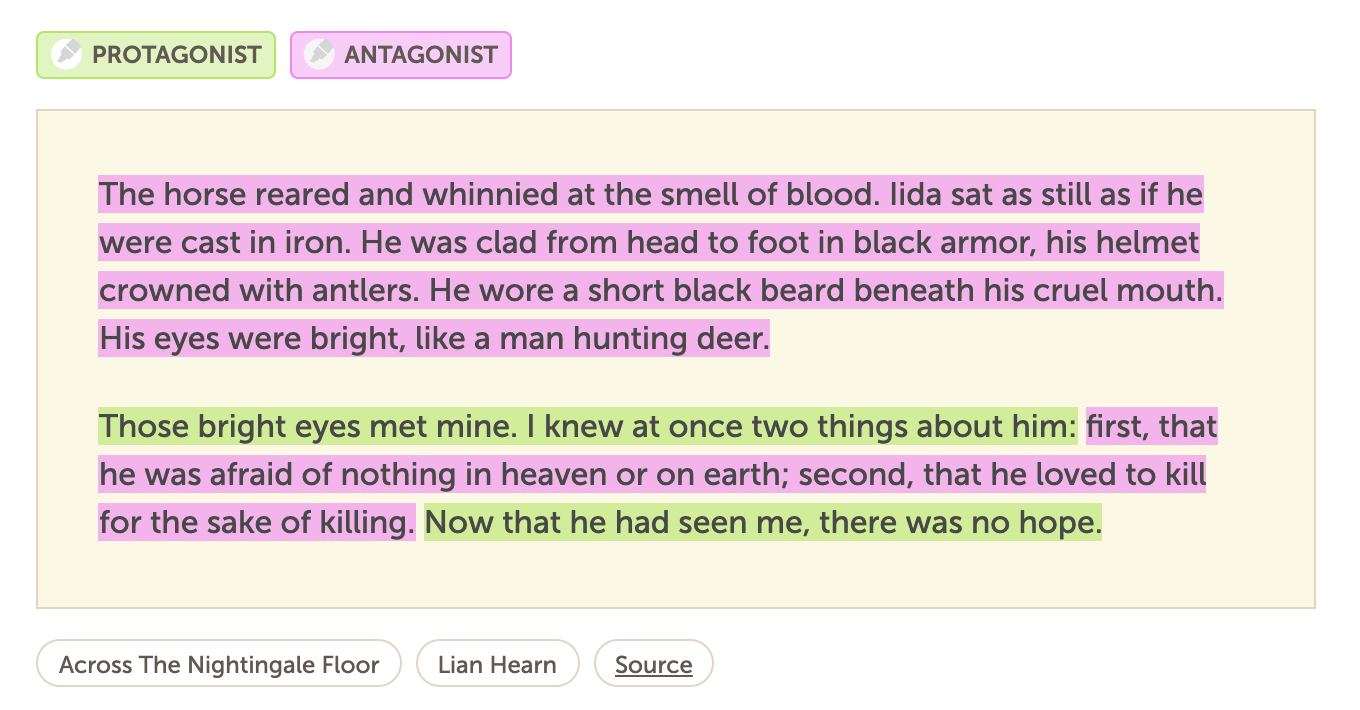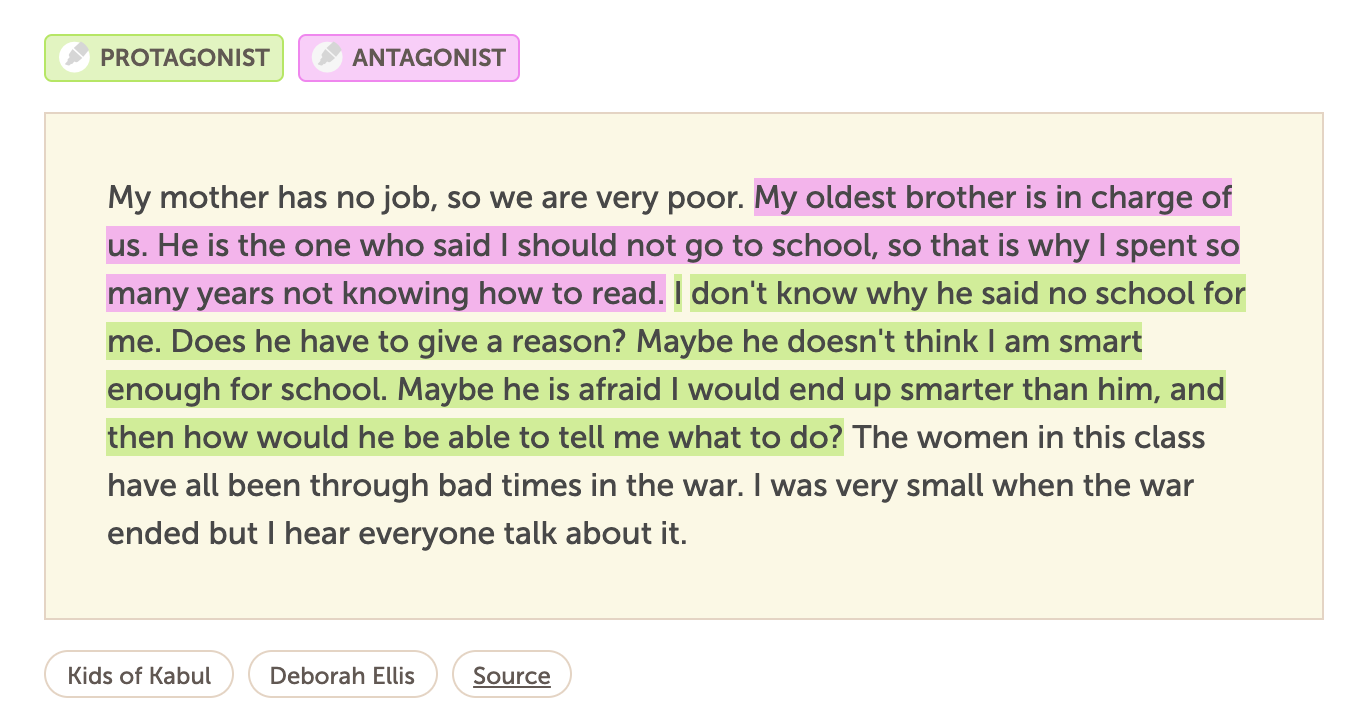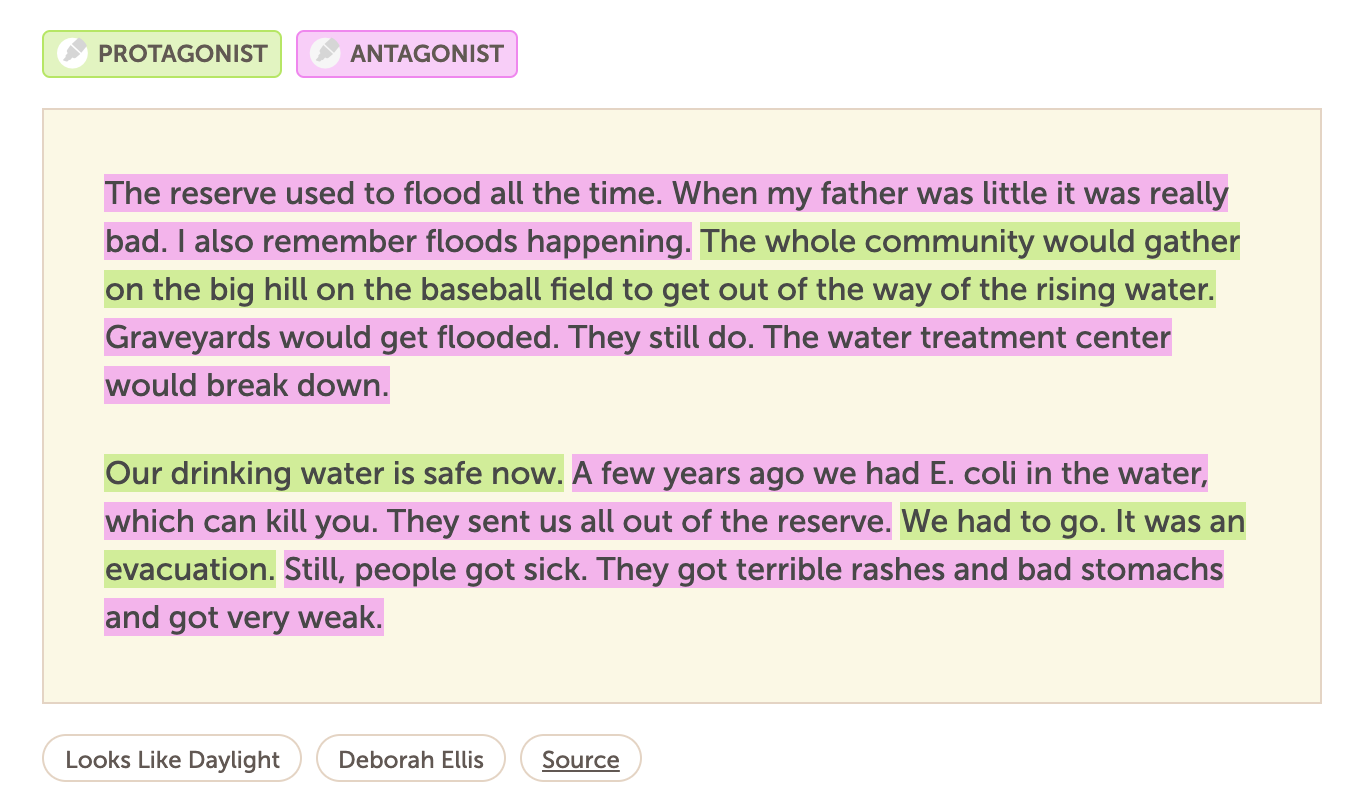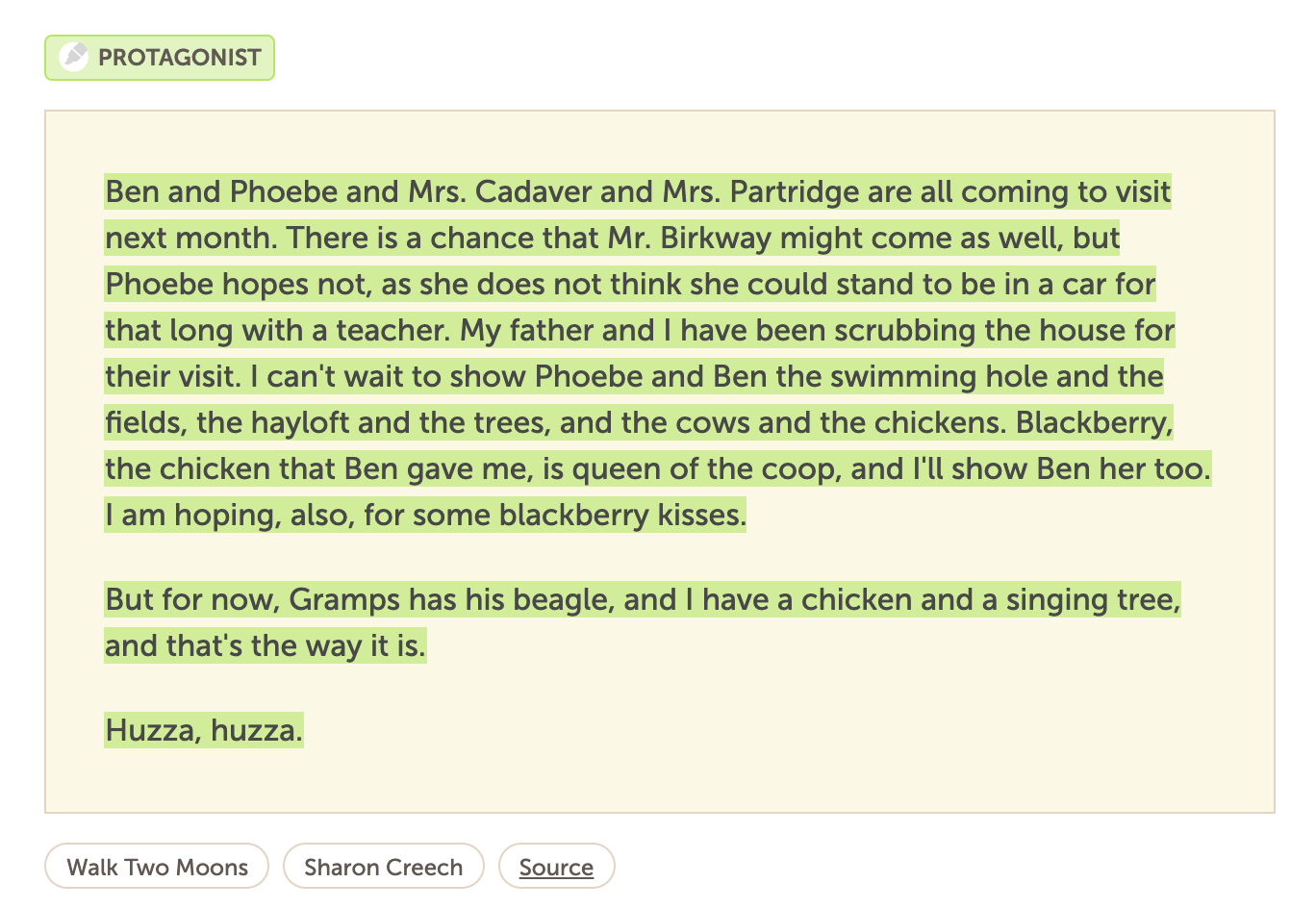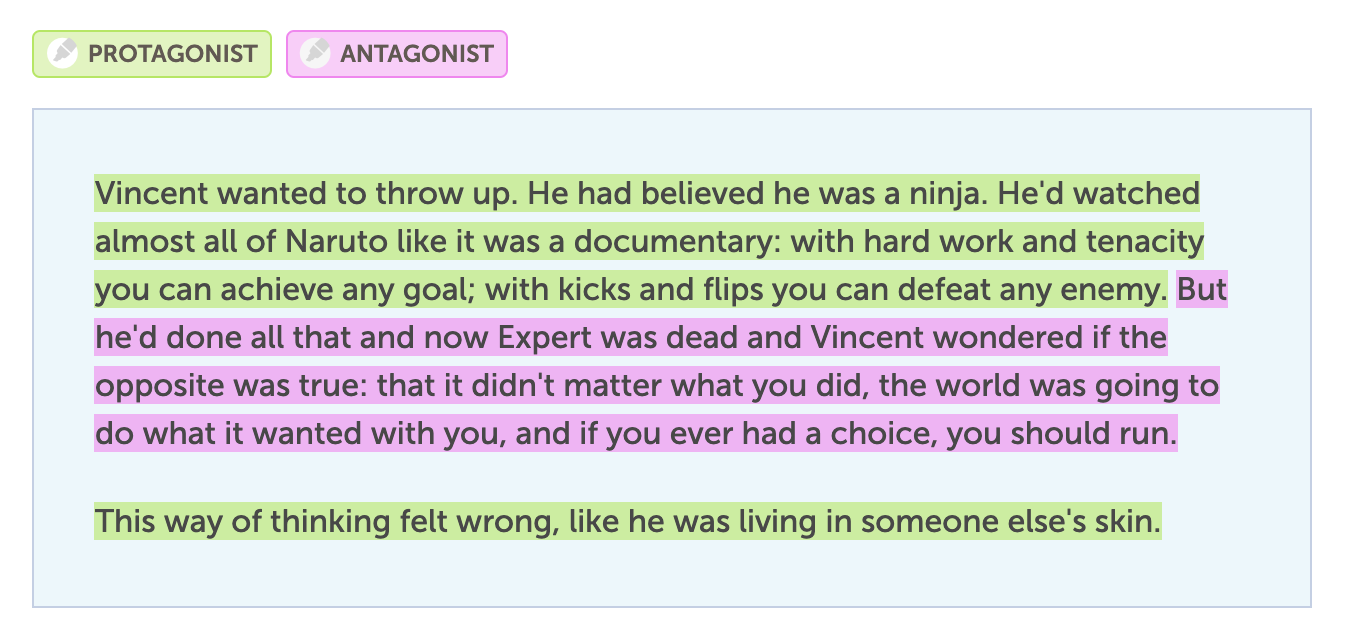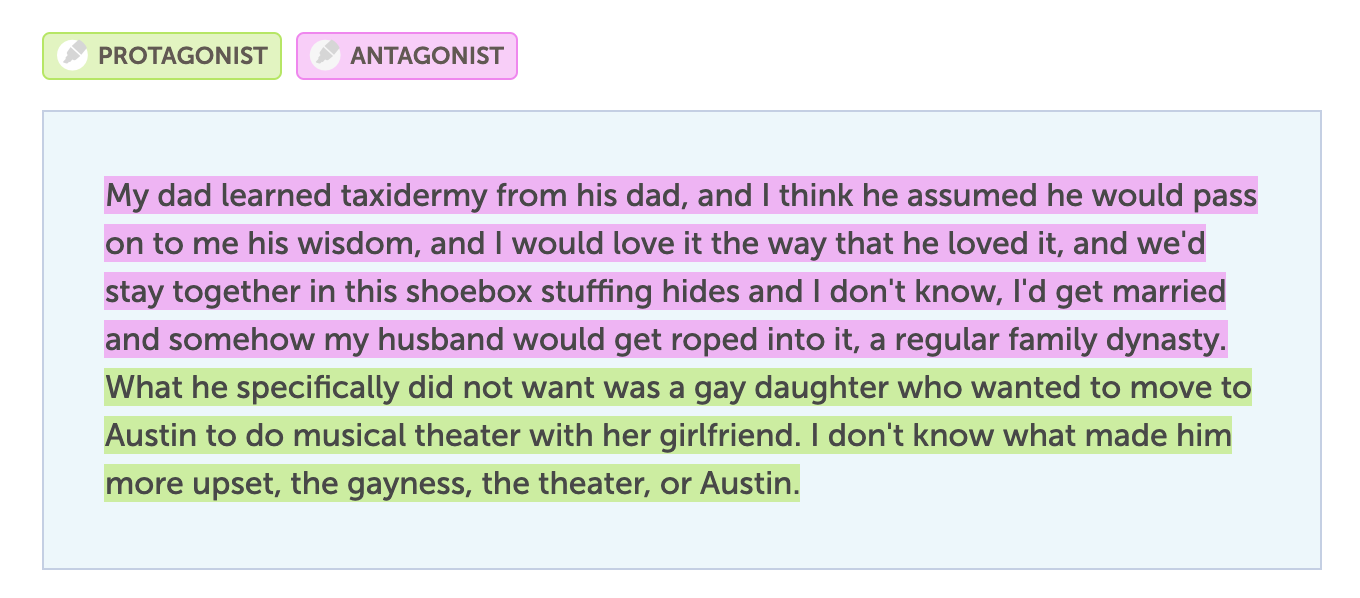New lesson on conflict & resolution in narrative
Conflict is one of the key architectural elements of narrative: it's often what tells us a story has 'begun', and its resolution tells us the story has 'ended'.
But while we as readers might have a good intuition for conflict, as beginning writers we can confuse the concept with "more shooting and shouting".
In this new lesson in the Narrative Skills series, we begin with the observation that conflict is more than fights.
We read and write a couple of examples of physical and verbal showdowns, and then discuss the difference between conflict—a sustained struggle between opposing forces—and confrontation—a specific moment when the forces clash.
We move on to explore three 'fronts' on which conflict might occur: relationships, environment, and internal self.
(This is the conventional 'man vs man, man vs nature, man vs self' framing, but rendered gender neutral and generalised to be a little more flexible. We also adapt the terms 'protagonist' and 'antagonist' to apply more to 'forces' than specific characters.)
Finally, we look at some different ways in which conflicts might be resolved (e.g victory/defeat vs growth & maturity-type resolutions).
This is a chunky lesson, with lots of writing. There are 10 standalone exercises, although we suggest students develop a sustained world throughout.
In the worked examples, we develop a zombie apocalypse in Hong Kong and a story about a girl deciding whether or not to leave the family taxidermy business and go to college:
To conclude the lesson, students select their favourite 3-5 responses, which then go as a set into Wrotevote.
You can preview the Conflict & resolution lesson here.
What's up next, or "When are you going to do a lesson on point of view?"
One of the most requested topics submitted in our browse survey is point of view.
We'll do it... after one more lesson on cause & effect! Just one more! Because we really want to conclude that theme.
Also, complex sentences is underway, and we swear that the next article is not going to be about lessons at all, but rather this guy:

